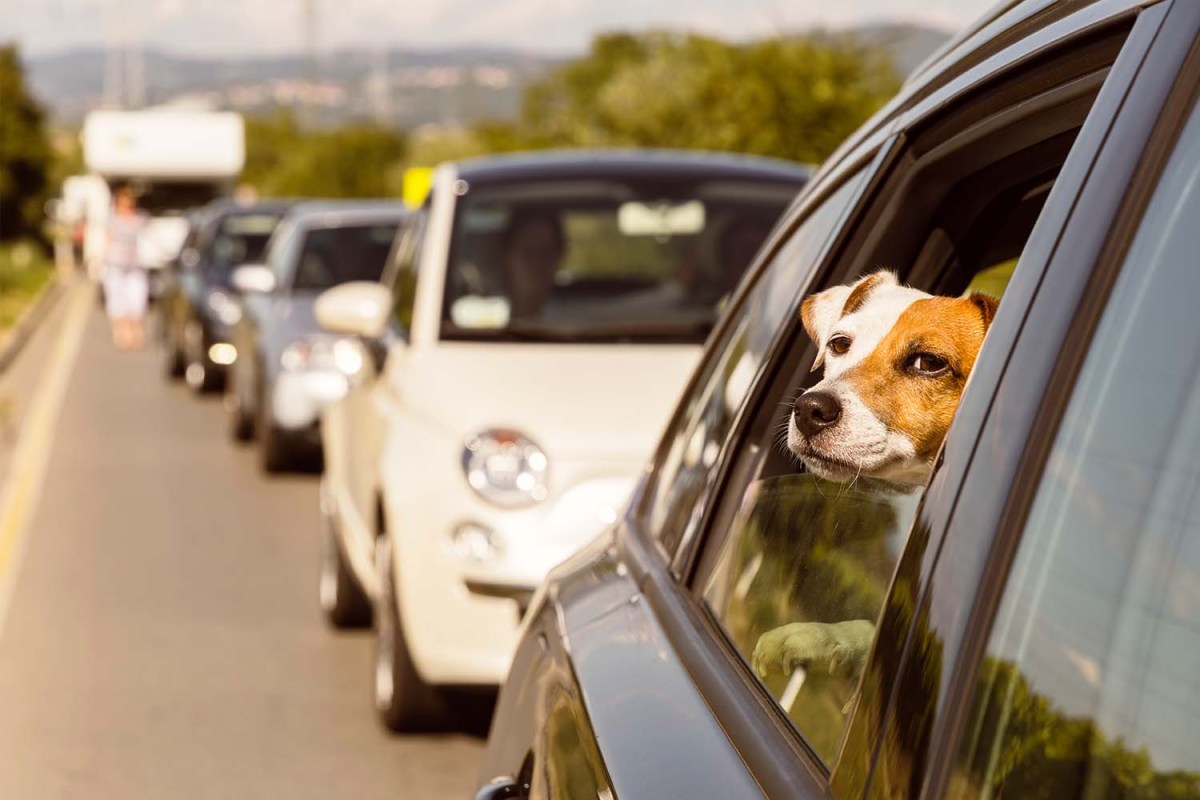As Fourth of July weekend draws near, travel is shaping up to be what we thought it would: utter lunacy.
Per AAA‘s forecast, more than 47.9 million Americans are reportedly taking trips this week, for what is expected to be the second-busiest Independence Day for travel since 2000. Meanwhile, on Sunday, TSA screened 2,462,097 passengers — making it the single busiest travel day since February of 2020. As Sean Cudahy points out at The Points Guy, “nine of the ten busiest days for air travel passenger volume since March 2020 have come in the last month — and the majority of those days fell in the last week or two.” In short, it’s going to be a banner week for travel.
That said, it also looks like we may be gearing up for a banner week where cancellations and delays are involved, too. On Monday morning, according to tracking site FlightAware, nearly 750 flights across the U.S. had been canceled before before 1:00 p.m., presumably as a result of the ongoing staffing shortages the industry is currently facing (pilots, flight crews and air traffic controllers among them).
The good news (depending on how you look at it) is that the overwhelming majority of travelers — a record-breaking 42 million, in fact — are still expected to drive, despite the national average price for a gallon of gas hovering around $5. As such, drivers within major metro areas (namely Atlanta, Boston, Chicago, Detroit, Houston, Los Angeles, New York, San Francisco, Seattle and D.C.) should obviously be prepared for some congestion.
“We expect nationwide travel times to increase about 50% compared to normal. Drivers around major metro areas must be prepared for significantly more delays,” Bob Pishue, transportation analyst at INRIX, said. “Knowing when and where congestion will build can help drivers avoid the stress of sitting in traffic. Our advice is to avoid traveling on Thursday and Friday afternoon.”
If you’re driving, chances are you have a little more leeway as far as arrivals and departures go, but there are still a few things to keep in mind before you hit the road this week:
- The worst time to be on the road on Thursday is going to be between 2 to 8 p.m. The best time to leave is before 7 a.m. or after 8 p.m.
- Friday is going to be the worst day for drivers, but if you must: leave before 10 a.m. or after 9 p.m. It’s going to be pretty congested 12 to 9 p.m.
- On Saturday, the busiest travel times are anticipated to be 2 to 4 p.m. Anytime before 12 p.m. or after 7 p.m. is going to be preferable.
- On Sunday and Monday, things are expected to return to normal (most people don’t tend to travel on the 4th).
Wondering where people are headed this July 4th? According to AAA booking data, the top destinations this Independence Day weekend are expected to be Orlando, FL; New York, NY; Seattle, Washington; Anaheim, CA; Anchorage, AK; Ft. Lauderdale, FL; Las Vegas, NV; Honolulu, HI; Denver, CO; and Chicago, IL.
Whether you’re flying or driving, the best any of us can do is come prepared. Get to the airport early (like, very early), carry on, have a contingency plan, have all manner of accommodations and methods of transportation booked in advance, and avoid peak travel times. And, if you can help it, don’t be a jerk.
Thanks for reading InsideHook. Sign up for our daily newsletter and be in the know.

















